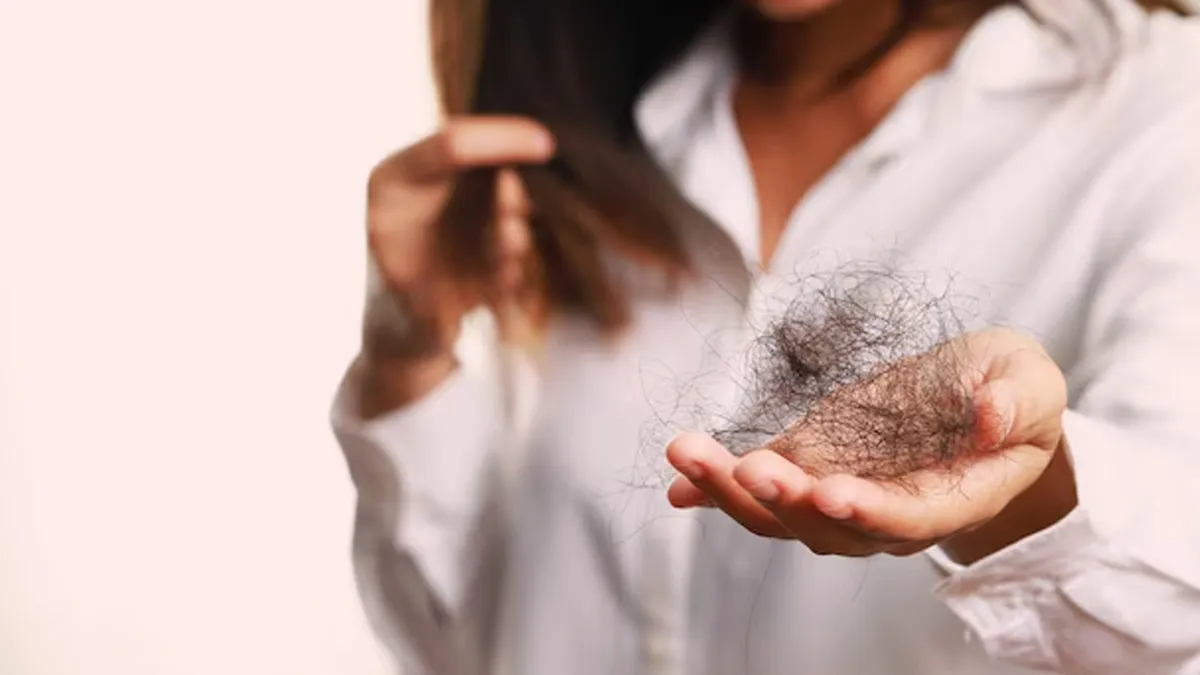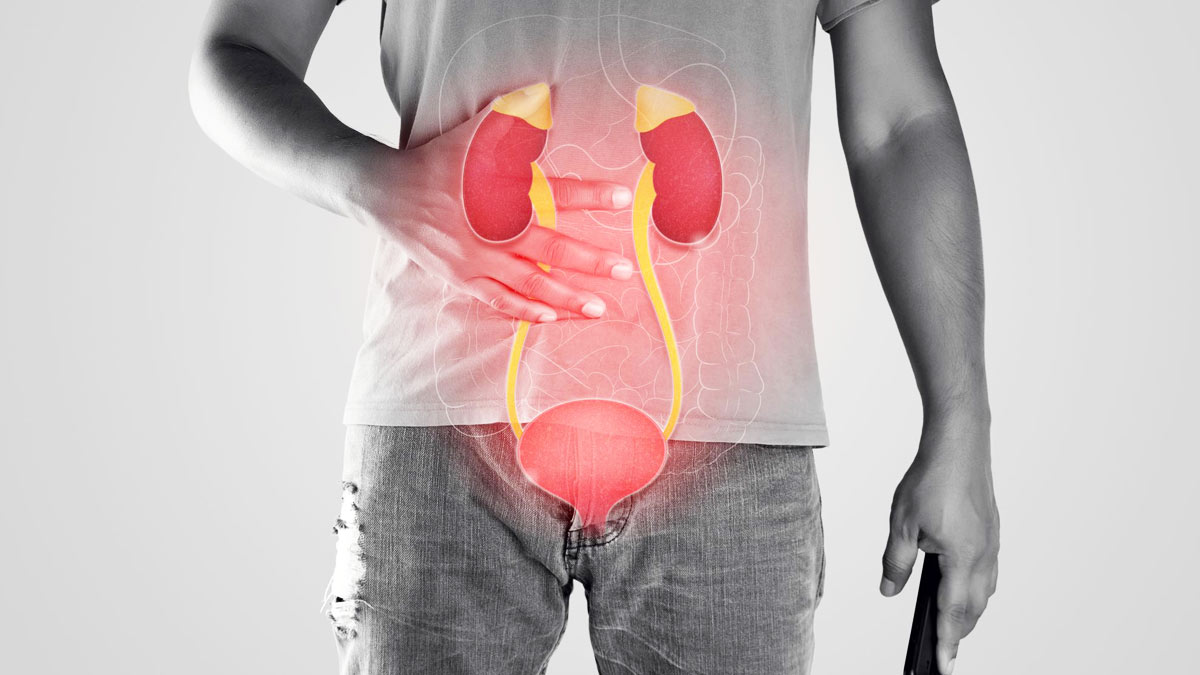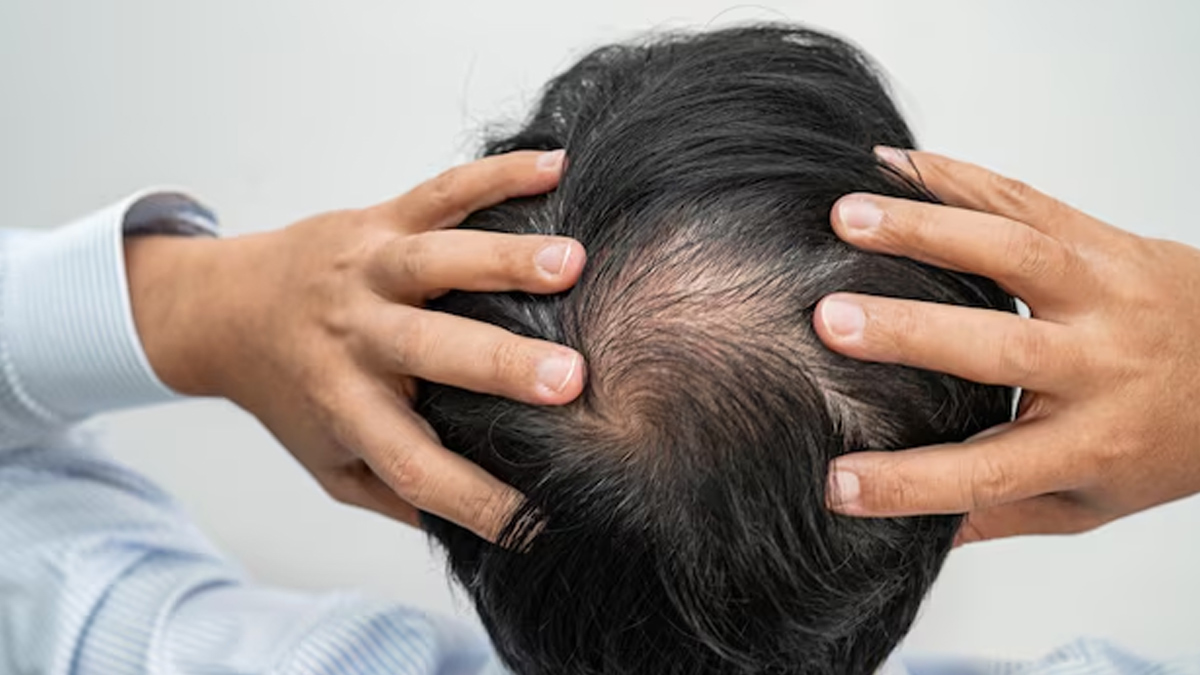
Hair loss is usually attributed to genetics, stress, or diet. But in certain instances, it may be an underlying health problem, such as kidney-related issues. The kidneys are crucial for filtering toxins, controlling hormones, and balancing nutrients. When they do not work correctly, the internal state of your body changes, and this may manifest on the outside, on your hair, skin, and nails.
Table of Content:-
Link Between Kidney Health and Hair Loss
To understand the link between kidney health and hair, the editorial team of Onlymyhealth reached out to Dr Pravin Banodkar, MBBS, DNB, DD (UK), FIDP Dermatology, Co-Founder and Lead Dermatologist of Skin Beyond Borders, Mumbai, and he explained to us that our hair follicles need a well-oxygenated blood supply and balanced nutrients to produce strong locks. Kidneys assist in controlling minerals such as iron, zinc, and vitamin D, all of which are needed for hair development. When kidney function is compromised, these nutrients are out of balance, resulting in softer hair and more shedding.
“Chronic Kidney Disease (CKD) is also responsible for hormonal imbalances, including a reduction in erythropoietin, which is a hormone that aids in the production of red blood cells. Red blood cell deficiency translates into less oxygen being delivered to your scalp, hence thinning or loss of hair,” he explained.
Also Read: Brain Aneurysm or Haemorrhage from a Burst Blood Vessel: How Awareness Can Save Lives?

Kidney disease also has the potential to cause autoimmune attacks on hair follicles in its more severe forms, leading to patchy hair loss.
Common Symptoms That Your Hair Loss Is Caused by Kidney Problems
Hair loss in itself isn't sufficient to make a diagnosis of kidney disease, but it can be one of a variety of warning signs. Dr Banorkar suggested tp check for hair loss that is accompanied by:
- Facial, hand, or foot swelling due to fluid buildup
- Weakness or fatigue from low red blood cell levels
- Urinary changes (frequent urination, foamy urine, or decreased volume)
- Itchy or dry skin, a common symptom of toxin buildup in the body
- Muscle cramps or nausea, which can indicate an electrolyte imbalance
“If you’re experiencing a combination of these symptoms, it’s essential to speak to a doctor and get your kidney function tested,” he added.

How to Protect Your Kidneys and Your Hair
Here are a few expert-approved ways to protect your kidneys and, in turn, your hair:
- Stay hydrated: Dehydration puts extra stress on the kidneys. Aim for eight to ten glasses of water daily unless your doctor advises otherwise.
- Eat a balanced diet: Take in foods that are high in iron, biotin, and omega-3 fatty acids, including leafy greens, nuts, eggs, and fatty fish.
- Avoid too much protein and salt: Excessive protein and sodium can overwork your kidneys, especially if you have some existing kidney problems.
- Limit alcohol and caffeine: Both dehydrate the body and put a strain on kidney function.
- Get regular checkups: If you have diabetes, high blood pressure, or a family history of kidney disease, regular kidney function tests can detect early trouble.
When to Seek Medical Help
Dr Banodkar highlighted that if you observe sudden or excessive hair loss, particularly with other symptoms such as puffiness, exhaustion, or urine discolouration, seek the opinion of a medical professional. You can find out whether your kidneys are functioning properly with a basic blood test that checks creatinine and urea levels.
“Early diagnosis of kidney problems not only prevents them from becoming worse but can even restore equilibrium to your hair growth cycle,” he concluded.
Bottomline
Hair loss tends to be brushed off as a superficial concern, but occasionally it's a warning sign from inside. Our body has ways of telling us when something is amiss, and our hair may be one of them. Pay attention, take care, and do not disregard the signs that your kidneys may be sending you.
Also watch this video
FAQ
1. Can kidney disease lead to sudden hair loss?
Yes. Kidney disease can result in nutrient deficiencies and hormonal changes that cause visible hair loss or thinning.2. How do I know if kidney issues are the cause of my hair loss?
If your hair loss is accompanied by fatigue, swelling, or urination changes, see your physician for kidney function tests.3. Can kidney function be enhanced to enhance hair regrowth?
In some cases, yes. Managing kidney health through a balanced diet, hydration, and medical treatment can help slow or reverse hair thinning caused by kidney issues.
How we keep this article up to date:
We work with experts and keep a close eye on the latest in health and wellness. Whenever there is a new research or helpful information, we update our articles with accurate and useful advice.
Current Version
Oct 10, 2025 12:54 IST
Modified By : Tanya SrivastavaOct 09, 2025 18:03 IST
Modified By : Tanya SrivastavaOct 09, 2025 16:04 IST
Published By : Tanya Srivastava